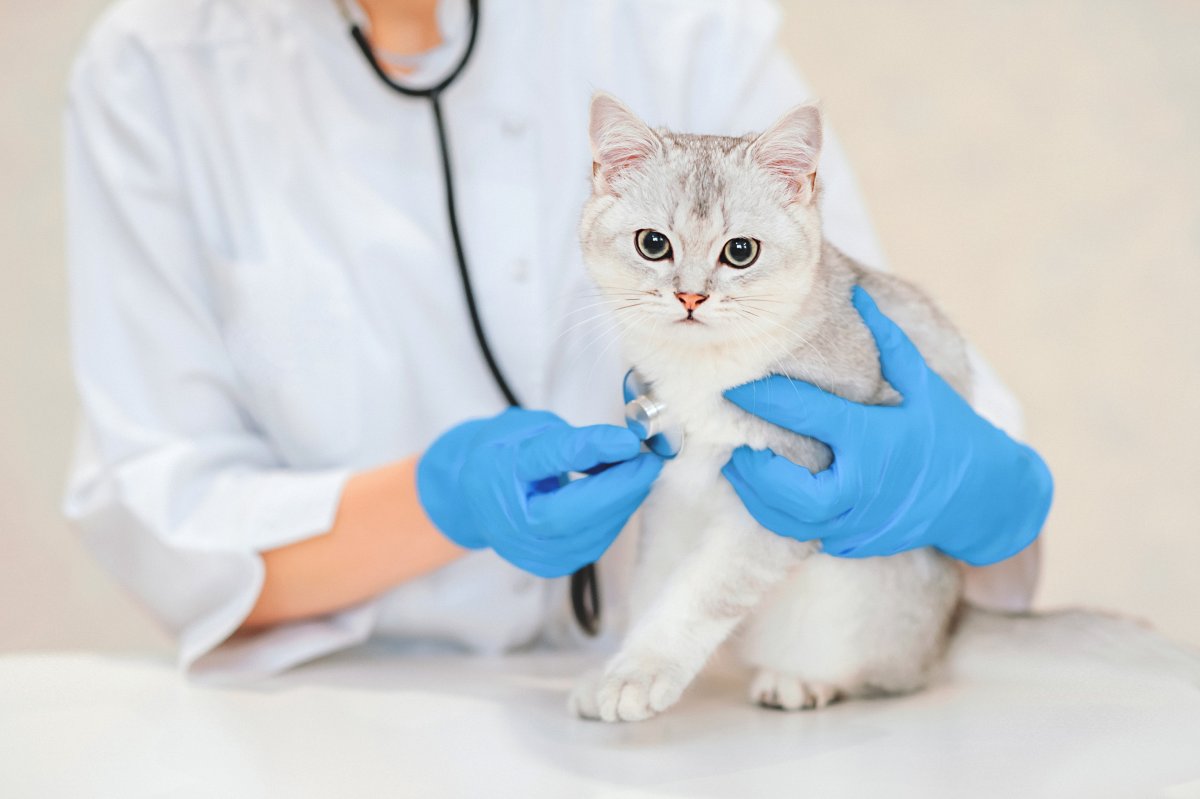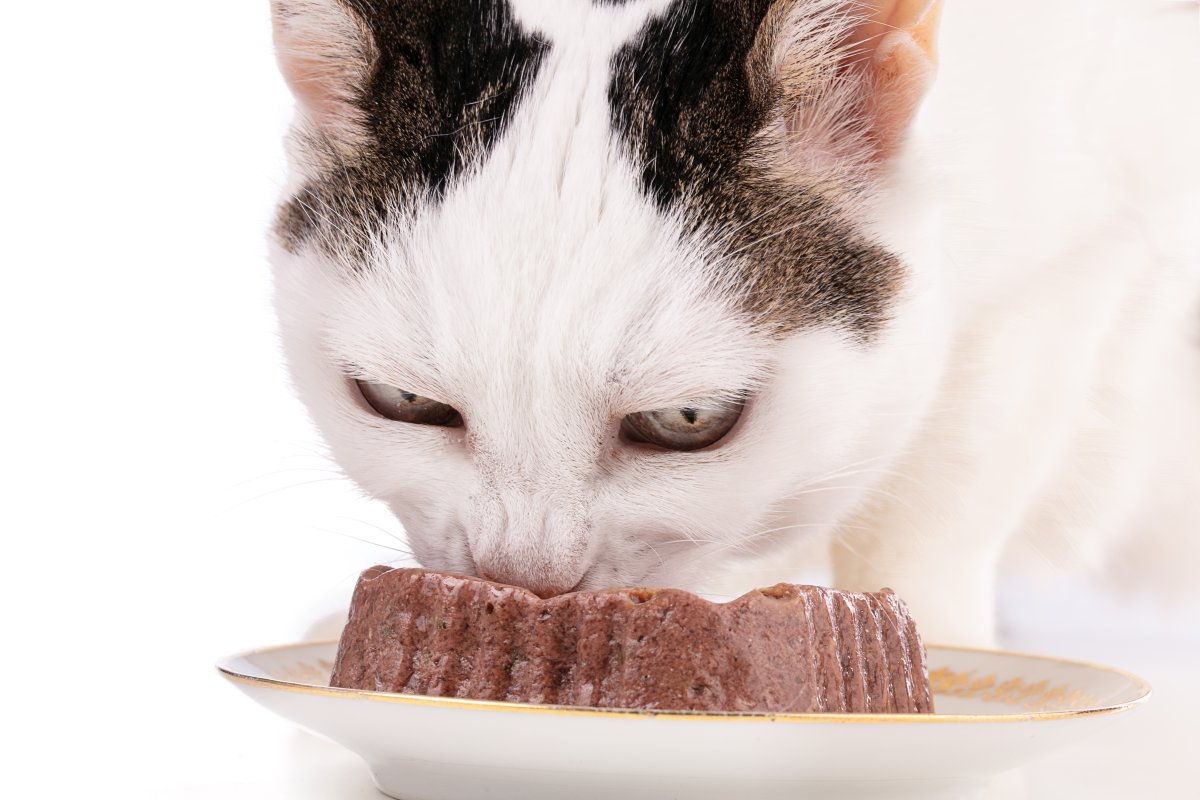Your vet plays a very crucial role in your cat’s wellbeing. If you keep a check on your cat’s health and diet, chances are that it will live for much longer and might live as a healthy cat for most of its life.
However, vets can be expensive and if you don’t have a lot of budget for your pet’s medical expenses, you won’t be able to afford a visit to the vet now and then. So, how often should you visit a vet to keep a check on your cat’s health? In this post, we will be clearing all of your confusion regarding this matter.
For Kittens (Up to 16 weeks)
Young kittens require a lot of attention and it’s better to make regular vet visits at this stage of your cat’s life. Kittens should be seen by licensed vets every 3-4 weeks until they are 16 weeks old. At this stage of your kitten’s life, it has to go through a series of vaccinations and checkups to make sure that it stays safe from dangerous diseases at a very young age. Vaccinations can also prevent your cat from contracting dangerous infections. You should also be very careful regarding your cat’s diet when it is so young.
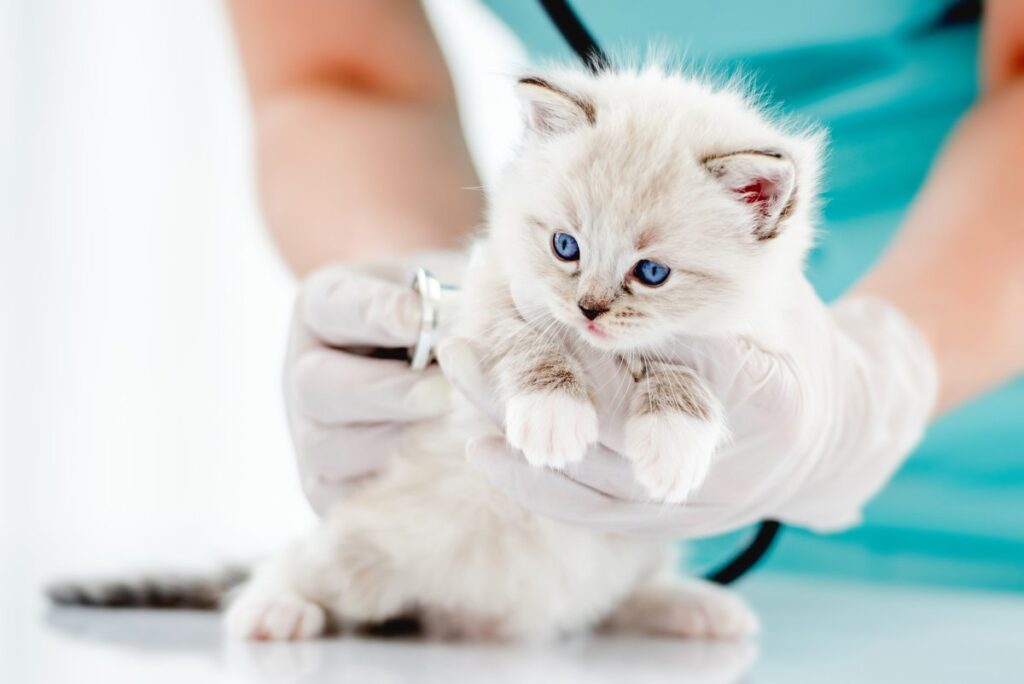
You should also get your young cat’s stool checked, as it might be suffering from gastrointestinal parasites. Some vets consider it an important practice and will ask for your cat’s stool samples on every visit. Therefore, don’t forget to take a squatter-sized stool sample of your cat with you on every visit for the first 16 weeks since your cat’s birth. In case of diagnosis, these parasites get removed in a matter of 2-3 weeks through medications. However, depending upon your cat’s health condition, this process can take longer.
Young cats should also be checked for leukemia, as it’s quite common in cats and early diagnosis can increase your cat’s chances of surviving. Therefore, Feline Immunodeficiency Virus blood testing is recommended if your cat is aged between 8 to 12 weeks. These are viruses that can be transmitted to your kitten through saliva, hence, getting it tested is very important to save your kitten’s life. You should also get your kitten checked for other life-threatening viruses as well.
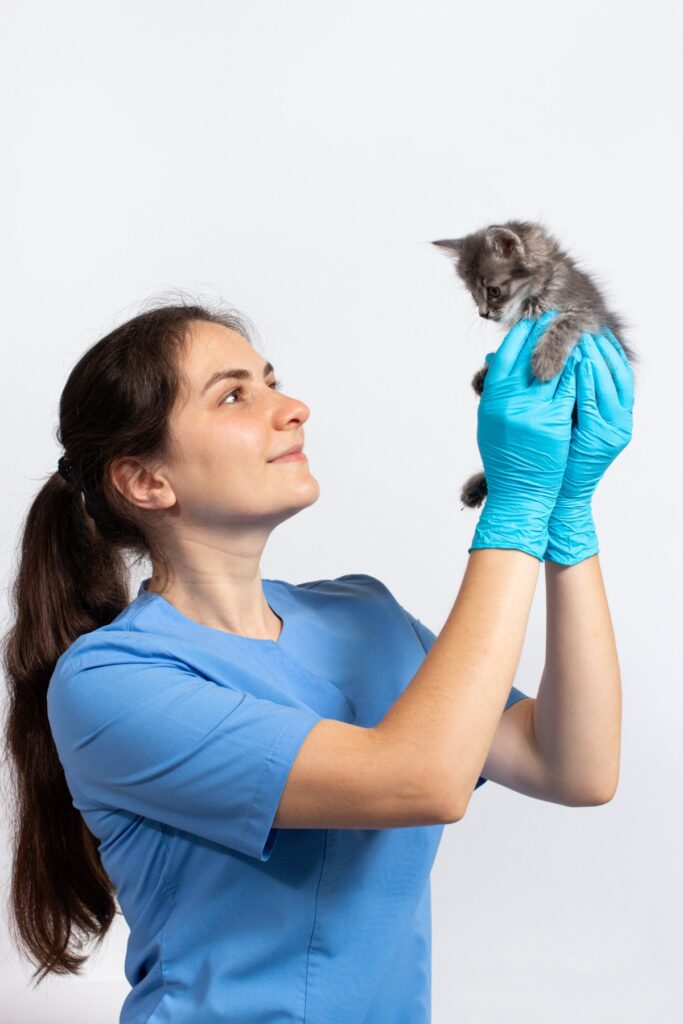
On every visit, it’s important to get your kitten examined from head to toe. One of the most common problems that face at this age is ear mites. If you don’t know how to remove ear mites properly, you should get it done by your vet.
Other than that, you should also get your kitten checked for possible skin issues and external parasites like ticks and fleas. In this examination, the vet will also examine the health of your cat’s lungs, heart, eyes, mouth, and kidney. It is also recommended to bring your cat’s urine sample with you on every visit and get it checked for possible urinary tract diseases.
You should carry a notebook with you on every vet visit as well. You have to be very careful with your kitten as at this age, cats are the most vulnerable to disease and viral infections. So make sure that you note down your vet’s advice, as your vet might write you prescriptions, but he/she won’t write down tips for you.
These tips will be very beneficial for you in the early stages of your cat’s life. If you are a newbie cat owner, then it is better to ask your vet how to provide your cat medicines so that it doesn’t start hating you. You can also ask your vet what type of pet food is good for your cat as there are some products that vets recommend especially for kittens. It is also important to neuter your cat when it’s 6-12 months old.
For Adults (Up to 10 years)
If your cat has grown up and is now a healthy adult, you don’t have to visit the vet very frequently. At this point, you know your cat and its health very well and you should probably know how to handle occasional sickness. You just have to visit a vet once a year for a head-to-toe checkup.
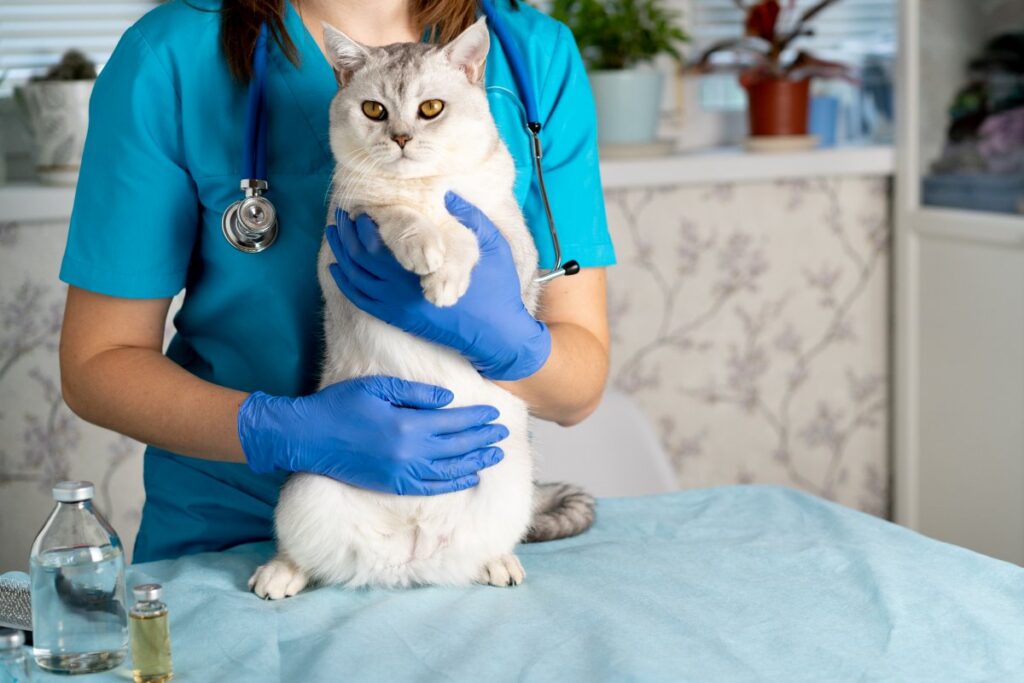
However, if your cat is going through some pre-existing medical issues, then it is recommended to visit a vet 2-3 times a year. Also, if your cat’s health deteriorates, it is important to take your cat to a hospital immediately, as some issues shouldn’t be handled by owners on their own. If your pet is on medications, make sure that you provide your cat with timely medications.
At this age, your cat’s dental health is also crucial as now, it will be eating all kinds of cat food, treats, and meat. If you want your cat to chew meat properly, mix mouthwash with your cat’s water. Also, you should pay a visit to a pet dentist once every year.
For Seniors (Beyond 10 years)
If your cat is nearing its life expectancy, it’s getting old, and at this age, it needs more medical attention. Therefore, you should visit a vet 2-3 times annually. For senior cats, you should be going for annual CBC, Chemistry and Thyroid bloodwork, and a urinalysis, regardless of how healthy it looks from the outside.
It is important to provide your cat with timely medicines if it’s on medication. You should also observe your cat’s behavior, including your cat’s sleeping and eating schedule and littering habits. If your cat is not as active as it normally is and is not doing a lot of physical movement, then it might be suffering from a disease, and it can get difficult for your cat to handle pain and sickness at this age.
In such cases, you should visit your vet more often. If you have a pet, you have to bear in mind that there will be medical expenses. Therefore, you should always save for your pet and if possible, get your pet involved.

